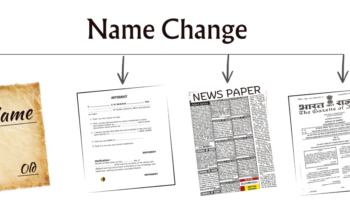With the growing popularity of global financial markets, many people are curious about the legal status of forex trading in Vietnam. As traders look for ways to profit from currency fluctuations, it’s essential to understand the regulatory environment and the rules that govern these activities. While forex markets are accessible worldwide, each country has specific laws that influence how trading is conducted.
The Legal Landscape of Forex Trading in Vietnam
In Vietnam, forex transactions are strictly regulated. The State Bank of Vietnam (SBV) oversees all activities related to foreign exchange, including trading. Currently, only licensed financial institutions and commercial banks are legally permitted to offer forex services within the country. These organisations can engage in currency trading, manage foreign exchange reserves, and provide related financial services under strict government supervision.
For individual traders, the situation is more complex. Direct participation in forex trading through domestic brokers is not legally authorised, as the SBV has not granted licenses to local firms for retail forex services. However, many Vietnamese traders still access the global forex market by using international online brokers based outside Vietnam. While this practice is widespread, it operates in a legal grey area because these brokers are not regulated under Vietnamese law.
The Risks of Trading with Offshore Brokers
Although trading through foreign platforms is common, it carries certain risks. Since international brokers are not regulated by Vietnamese authorities, traders have limited legal protection if disputes arise. This lack of oversight can expose individuals to potential fraud, hidden fees, or poor trading conditions. Therefore, it’s important for traders to choose brokers that are licensed by reputable international regulatory bodies, such as the UK’s Financial Conduct Authority (FCA) or Australia’s ASIC.
Moreover, transferring large sums of money to offshore accounts could raise concerns with local financial institutions, especially if transactions do not comply with Vietnam’s strict currency control regulations. To minimise these risks, traders should maintain proper records of their transactions and consult with legal or financial advisors when needed.
How Forex Trading Is Monitored
While Vietnamese authorities do not actively target individuals for using foreign brokers, they closely monitor financial activities related to foreign currency exchanges. Banks are required to report suspicious transactions, especially large or frequent transfers to overseas accounts. This monitoring is part of Vietnam’s efforts to prevent money laundering and maintain control over foreign exchange flows.
Traders should be aware that engaging in speculative currency trading through unauthorised domestic platforms is illegal and could result in penalties. However, as long as transactions are conducted through reputable international brokers and do not involve illegal activities, enforcement actions against individual traders have been rare.
The Future of Forex Regulation in Vietnam
Vietnam’s financial landscape is evolving, and there have been discussions about modernising the legal framework to accommodate the growing interest in online trading. Some industry experts believe that the government may introduce clearer regulations for retail forex trading in the future, potentially allowing licensed domestic brokers to operate legally.
For now, individuals interested in currency trading should focus on risk management and ensure they are working with trusted international platforms. Staying informed about changes in regulations is also important, as new laws could impact the legal status of trading activities.
Conclusion
While forex trading is not illegal in Vietnam, it is subject to strict regulations that limit the participation of individual traders through domestic brokers. Most Vietnamese traders access the market via foreign platforms, which comes with legal uncertainties and risks. Understanding the current regulatory environment, choosing reputable brokers, and staying updated on potential legal changes are crucial for anyone looking to trade currencies in Vietnam. By approaching trading cautiously and responsibly, individuals can navigate the complexities of the forex market while minimising potential legal issues.




